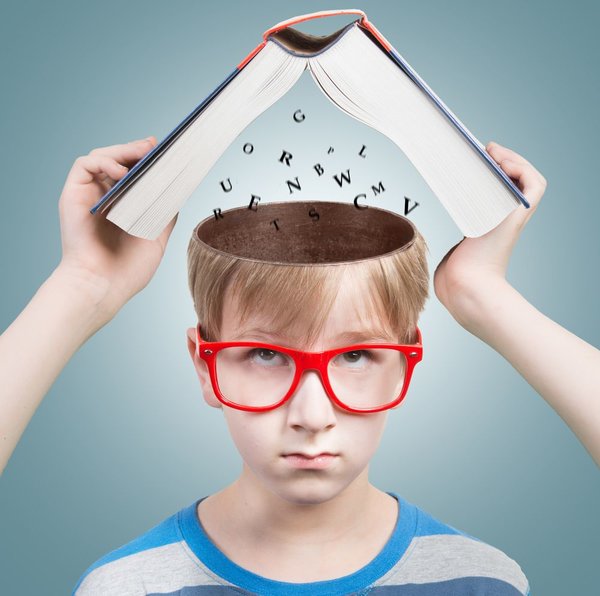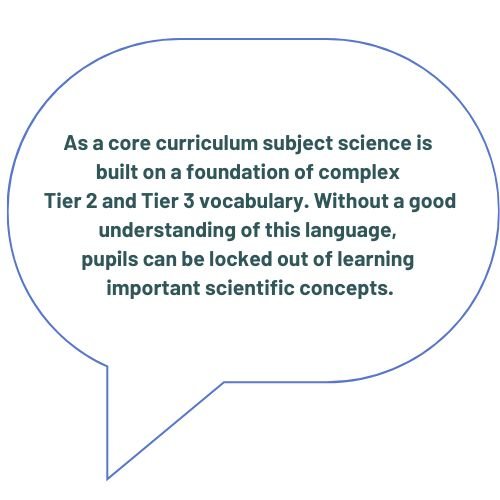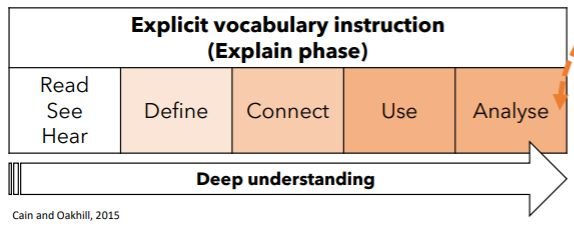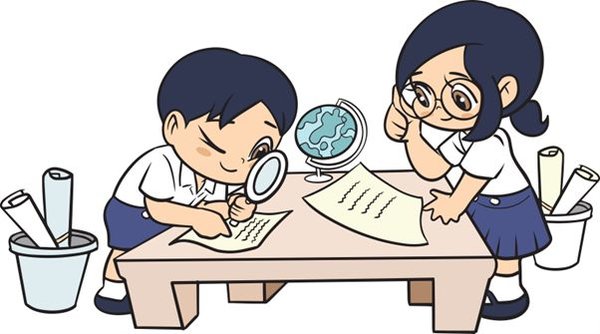
We aim to give food for thought as well as inspiring your creativity and
providing practical ideas you can’t wait to implement in your own settings!
Language and Communication in Science

We love buzzwords in Education, don’t we? A catchy acronym, a bit of alliteration - ROLOs. SEFs.
One which has come back into fashion (did it ever go out?) is oracy; also known as speaking and listening.
Vocabulary is another buzzword currently enjoying its time in the spotlight. However, far from being just current educational buzzwords, these aspects of our curriculums are vitally important and require careful and hard thinking.
Research
The Oxford University Press research ‘Why Closing the Word Gap Matters: Oxford Language Report’ reveals that we know how vital a good knowledge of vocabulary is to our lives. We know as adults that if we don’t understand a few words in a sentence, our understanding of that sentence is severely impaired. Multiply that by the potential number of children in our classes with word gaps and by even more by the time our children get to high school and learn in more depth across multiple subjects...we see the problem.
According to the research it manifests in a variety of ways:
86% Lower self esteem
74% Less likely to stay in education
56% Negative impact on behaviour
25% More difficulty making friends
22% Worse school attendance rates
86% Lower self esteem
74% Less likely to stay in education
56% Negative impact on behaviour
25% More difficulty making friends
22% Worse school attendance rates

‘”Locked out”. Powerful stuff.
I love that the project focuses on science – a subject I love but which is sometimes a rush to organise at lunchtime! There are also several well-known websites which mean that resources can be easy to find, but I do think can become a bit ‘worksheety’ in a subject which should, in my opinion, be full of excitement and hard thinking!
What exactly is involved?
So, we began the project. It’s an ‘early development project’, so I know that it is in its very early stages and will improve. Because the focus is on language development, there is a lot of high-level language used – for example, ‘excretion’, ‘reproduction’, ‘sensitivity’ etc. The slide decks follow the same evidence-based pattern of explicit vocabulary instruction.

There is a focus word for each session, which is clearly defined and which the children echo back to us. This has been really effective; although a struggle at first, the children really do know the vocabulary focus from the lesson and really enjoy repeating the words and sentences back. All children can achieve this and my EAL children have particularly enjoyed it. This ‘echo reading’ is something I’ve implemented in many different subjects and seems to be effective. There are no passengers, everyone must join in!
Specific vocab activities
There are also short vocabulary activities which make the children think hard (sometimes a bit too hard I think!). But we select the activities we feel are most appropriate for our children. For example, we give the children 6 words, and they must join the words in pairs.
The words might be:
bee jungle
hive woodlouse
parrot log
There is a certain freedom in this activity – the children can choose which words they pair together, but they do have to explain their choices, so it isn’t quite as easy as it appears! Some children chose to match the animals and habitats, some chose things that fly, some children chose to link the habitats together. The challenge is in the higher-level thinking.

Explorify
We often use the Explorify resources in our science sessions. These are wonderful for stimulating interesting discussions, which are inclusive – all children can join in. They are also good for modelling new vocabulary.
I also like using them at the beginning of a session to aid retrieval – you could choose a discussion about the previous session’s learning. In Year 2, we are working on writing ‘good’ sentences to match our discussions (we are still working at that!), practising our writing too!
Presenting the learning
The project has also made me think carefully about how I present the learning to my children. The presentations are quite sparse, in terms of colours, clipart etc. This has been a deliberate decision to reduce cognitive overload and remove extraneous information. Are the children thinking hard about the science focus, or about the cute clipart of a kitten? This is not to say that there are no pictures in the presentations – there are. However, they are mainly either photographs, diagrams, or black and white icons. Now, I’m not saying there shouldn’t be any nice pictures in presentations…but I think it is about balance. Is it going to distract some children?
Dual coding
There is also a nice focus on dual coding in the presentations, allowing all children to access the slide decks. On a practical level, I don’t think this can be done all the time – you could spend your life looking up icons for one sentence. But it is something to bear in mind – especially for those key vocabulary terms we want our children to learn.
If you’d like to learn more about dual coding, The Learning Scientists has some brilliant information.
So far, so good!
My class have taken part in lots of practical science so far this half term – we’ve been outside looking for minibeasts, created microhabitats etc. But we’ve also had lots of wonderful discussions, praised when children have used new vocabulary and thought hard about what words we use in sentences. They have loved the challenge of the project so far and this has been enhanced by retrieval quizzes, ‘showing off’ our new vocabulary to their parents and creating a buzz around our new vocabulary. I can’t wait to see what a difference it will make to our scientific understanding.
My Key Takeaways:
• Look carefully at the key vocabulary for a session – what is vital for the children’s understanding?
• Prepare a short script beforehand – a definition of the word, a sentence giving the word a context and explain when the children might use the word. Children should then echo back the sentence and possibly give their own idea too.
• Try to ensure your presentations are pared back – is the information clear? Are any pictures etc necessary/do they add value to the presentation?
• Our children should be regularly retrieving their new vocabulary knowledge – making it ‘sticky’ and strengthening our long-term memories. This can be done with a short vocabulary quiz, putting the missing words into a sentence etc – there are lots of ideas out there!
With many thanks to Alex Broadley for writing this article.
Alex is a year 2 teacher and member of the EuHu teacher board.